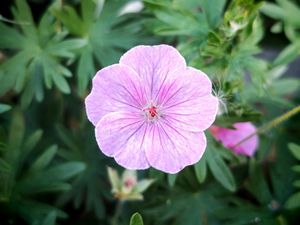From soil to soul: How native plants enhance British gardens and wellbeing
As the British summer peaks in late July and early August, gardens across the UK are in full bloom.

This season's vibrant displays increasingly showcase native plants, not only for their environmental benefits but also for their stunning allure.
The delicate azure of English bluebells, the pungent aroma of wild garlic, and the sweet scent of honeysuckle all add a unique charm to British gardens, reflecting a growing trend that marries environmental responsibility with personal well-being.
A spokesperson for the Drainage Shop explained why more British gardeners are choosing local flora and how it enhances both their outdoor space and mental health.
Environmental and Practical Advantages:
Native plants, such as British bluebells, wild garlic, and honeysuckle, are increasingly popular in British gardens due to their environmental and practical benefits. Adapted to the UK's climate and soil, these plants require less water, making them a more sustainable choice compared to non-native species. Their resilience also reduces the need for chemical pesticides and fertilisers, further contributing to a healthier ecosystem.
One significant advantage is their role in efficient drainage. Native plants like yarrow and foxglove are well-suited to the UK's variable weather, absorbing excess rainfall and reducing runoff. This naturally occurring drainage helps prevent soil erosion and minimises waterlogging, which is particularly beneficial in regions prone to heavy rains that the summer has already provided, and no doubt more will occur following consistent hot weather.
Additionally, native plants support local wildlife. They provide essential food and habitat for birds, butterflies, and insects, boosting biodiversity and contributing to a robust atmosphere. For example, cuckooflower can attract butterflies, while hedgerows of natural flora offer shelter and nesting sites for birds.
Gardening for Mental Health:
The mental health benefits of gardening are well-established, and using native plants can amplify these effects. Gardening with local flora not only connects individuals to their natural surroundings but also fosters a profound sense of accomplishment. In the UK's unpredictable climate, native plants like marsh marigolds and thyme are resilient, providing consistent joy despite weather challenges.
Engaging with nature through gardening is a proven stress reliever and promoter of well-being. The act of planting and nurturing native species not only offers a calming escape but also encourages mindfulness. The tactile moments of handling soil and the visual pleasure of vibrant blooms contribute to a soothing and therapeutic gardening experience.
The rising popularity of native plants in British gardens reflects a broader commitment to sustainability and one’s own health. These plants offer practical benefits such as improved drainage and reduced maintenance while enhancing mental well-being via the overall natural enrichment they provide.
As summer continues, incorporating native flora into your garden can create a thriving, eco-friendly sanctuary that supports local wildlife and your sense of peace heading into the cooler seasons ahead.
By Fiona Marshall - Contributor




